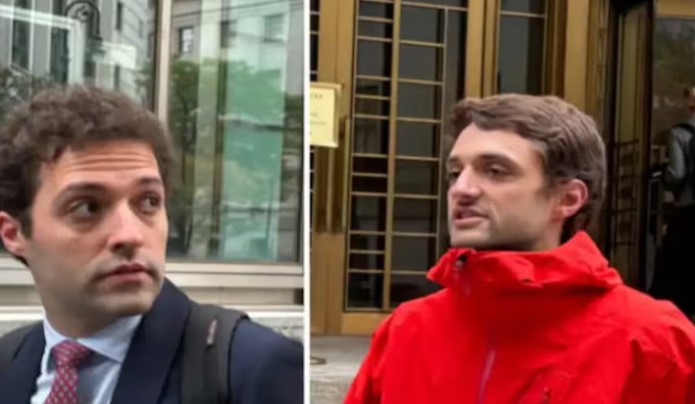
The defense argues that the brothers simply outsmarted "predatory" automated trading bots, which is fair game in the crypto world.
Two MIT-educated brothers, Anton and James Peraire-Bueno, have gone on trial in Manhattan federal court over allegations of stealing $25 million in a cryptocurrency heist. Prosecutors claim the brothers used their coding skills to manipulate Ethereum blockchain transactions, exploiting a vulnerability that allowed them to access and alter private transactions. The brothers' defense team argues that their actions weren't fraudulent, but rather outsmarting "predatory" automated trading bots, which they claim is fair game in the high-stakes world of crypto trading, Business Insider reported.
The trial, which began on October 14 in Manhattan federal court, hinges on whether the brothers' actions constitute fraud or clever trading. If convicted, the brothers could face up to 20 years in prison for each of the charges, including conspiracy, wire fraud, and money laundering.
Anton Peraire-Bueno, 25, and James Pepaire-Bueno, 29, are alumni of the Massachusetts Institute of Technology (MIT), who studied mathematics and computer science at the renowned institution.
What is the case against them?
Prosecutors claim the brothers meticulously planned their $25 million Ethereum heist over three months, using their expertise to exploit a software vulnerability and intercept private transactions. During a 12-second window, they allegedly altered the transactions, replacing legitimate trades with worthless crypto, rendering the transactions useless.
It is claimed that the brothers used "bait transactions" to identify and study three victim traders, setting a trap for their trading bots. They lured the bots with attractive crypto trades, then exploited a software vulnerability to access private transaction information and alter the purchases. The victims ended up buying worthless crypto, while the brothers allegedly made off with $25 million.
Prosecutors also allege that prior to the heist, the brothers conducted online searches for terms like “how to wash crypto,” “top crypto lawyers,” “fraudulent Ethereum addresses database,” and “money laundering statute of limitations.”
"Using the specialized skills developed during their education, as well as their expertise in cryptocurrency trading" the brothers "exploited the very integrity of the Ethereum blockchain," prosecutors said in a 19-page indictment.
The Brothers' Defense
The brothers' defense team argues that there was no fraud or intent to deceive, as cryptocurrency transactions operate without central authority or strict regulations. Instead, they claim the brothers exploited economic incentives and outsmarted "predatory trading bots," which is a legitimate aspect of the crypto market. The defense asserts that the alleged victims made high-risk trades that simply didn't pan out in their favor.
"But there was nothing stolen and there was no theft, as that word would normally be used," Patrick Looby, who is representing James Peraire-Bueno, told Business Insider.
Cryptocurrency regulation has long been a subject of debate. A recent report by the United Nations Office on Drugs and Crime (UNODC) highlighted cryptocurrency exchanges have increasingly become a key tool used by organised crime networks to move and conceal illicit funds.

















